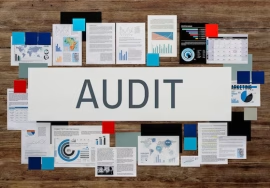
Withholding Tax Explained: What It Means for Your Business
When you’re running a business, taxes can seem like an endless maze of rules and regulations. One crucial concept you’ll encounter, especially if you’re paying vendors, employees, or contractors is withholding tax. But what exactly is it, and why should it matter to your business?
In this article, we’ll break down what withholding tax is, how it works, and what you need to know to stay compliant and protect your business.
What Is Withholding Tax?
At its core, withholding tax is money that a business withholds from a payment and sends directly to the government on behalf of the recipient. Think of it as a way for governments to collect taxes at the source of income, rather than waiting for individuals or companies to pay their taxes later.
It usually applies to:
- Employee salaries and wages
- Payments to independent contractors
- Interest, dividends, and royalties
- Certain vendor payments (especially across borders)
Withholding tax helps ensure that taxes are collected promptly, and it shifts part of the responsibility from the individual or service provider to the business making the payment.
Why Is Withholding Tax Important for Your Business?
Whether you’re a startup or an established enterprise, understanding and managing withholding tax is crucial because:
- Legal Compliance: Failing to withhold the correct amount can lead to hefty fines, penalties, and audits.
- Cash Flow Management: Proper withholding ensures you’re not stuck with unexpected tax bills down the line.
- Business Relationships: Many contractors and vendors expect you to handle withholding appropriately. Missteps can damage trust.
- Cross-Border Transactions: If you work with international suppliers or freelancers, different withholding rules apply depending on treaties between countries.
How Does Withholding Tax Work?
Let’s walk through a simple example:
Imagine you hire a freelance graphic designer for a project and agree to pay them $1,000. If the applicable withholding tax is 10%, you would:
- Pay the freelancer $900 (after withholding $100 for taxes).
- Submit the $100 directly to the tax authorities.
- Provide the freelancer with a document (like a W-2, W-8BEN, 1099 form, or local equivalent) at year-end showing how much tax was withheld.
This process protects your business because the tax authority knows you’ve done your part, and it makes the freelancer’s tax reporting more straightforward.
When Does Your Business Need to Withhold Tax?
The specific rules vary by country and industry, but common situations include:
- Paying employees (mandatory withholding for income tax, social security, etc.)
- Hiring independent contractors (especially non-residents)
- Paying royalties or interest to foreign entities
- Disbursing dividends to shareholders
Make sure you check whether local or international withholding tax rates apply and whether exemptions exist under tax treaties.
Tips for Managing Withholding Tax in Your Business
- Understand Local Laws: Each country and sometimes each state has its own withholding rules.
- Get Proper Documentation: Always request tax identification numbers and completed tax forms from your contractors or vendors.
- Use Payroll and Accounting Software: Automating tax withholding reduces errors and keeps you compliant.
- Stay Updated: Tax rates and rules can change. Regularly review updates from tax authorities.
- Consult a Tax Professional: Especially if you deal with cross-border payments, an expert can save you from costly mistakes.
Conclusion
While withholding tax might sound complex, it plays a critical role in how businesses manage their financial obligations. Understanding when and how to withhold the right amounts not only keeps your business in good standing but also fosters stronger, more transparent relationships with your workers, contractors, and vendors.
When in doubt, don’t hesitate to consult with a tax professional. Getting it right the first time is much easier (and cheaper) than fixing mistakes later. CruzWise Consulting specializes in helping businesses navigate complex tax regulations, ensuring your withholding obligations are handled accurately and efficiently. With the right partner by your side, you can focus on growing your business with confidence.








